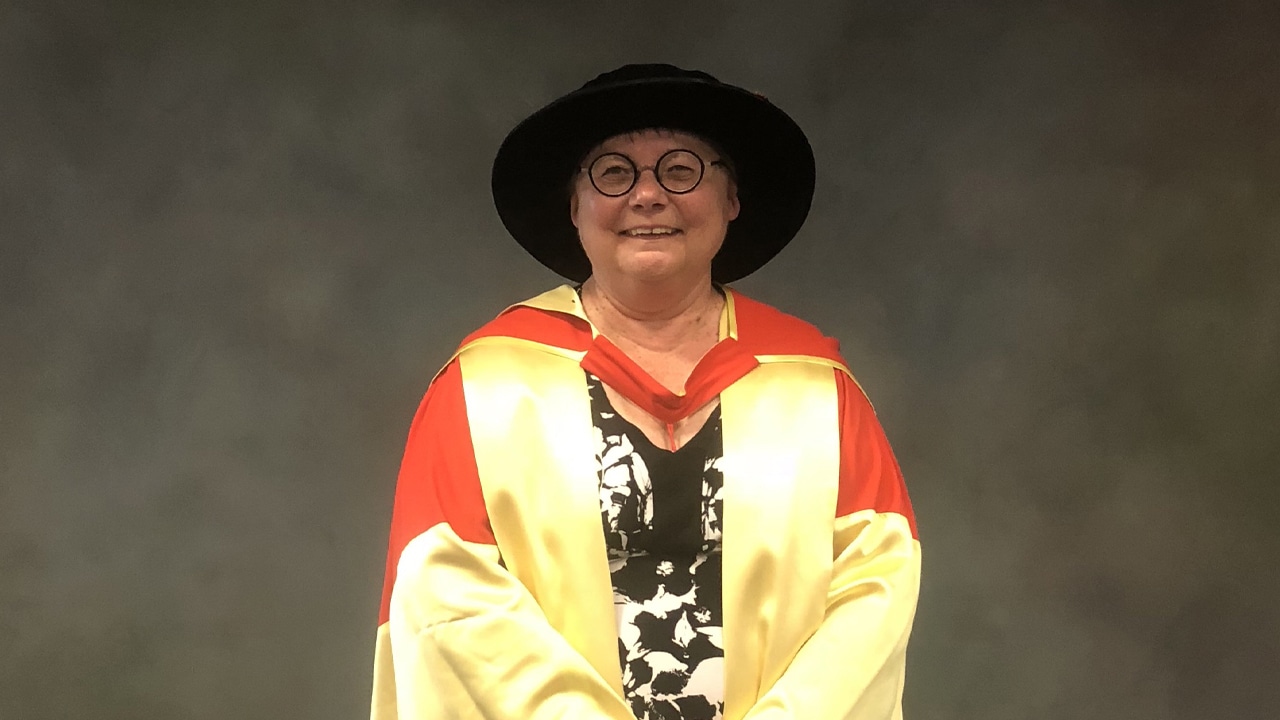Professor Rosemary Horne awarded Doctor of Science
By Hudson Institute communications

Professor Rosemary Horne has been awarded a Doctor of Science from Monash University for more than three decades of research that has shaped the understanding of sleep in children and infants.
The Doctor of Science (DSc) is of a higher standing than a PhD and is awarded for work that makes an original, substantial and distinguished contribution to knowledge in a field with which the faculty is concerned. The degree provides the recipient with authoritative standing in their field and recognition from their academic peers.
Rosemary’s thesis incorporates 143 research publications, from her PhD studies into Sudden Infant Death Syndrome (SIDS) in the early 1980s to studies on sleep disorders in infants and children published up until 2015.
“The unifying theme throughout this Doctorate of Science thesis is the development, refinement and utilisation of physiological recordings during sleep, initially in preclinical models then subsequently in infants and children,” Rosemary said.
Rosemary’s research has had significant clinical impact, including changing treatment approaches for sleep-disordered breathing in children, and shaping the advice that is provided to parents to reduce their baby’s risk of SIDS.
Her PhD studies (undertaken part time from 1982-1988) investigated the sleep arousal responses to high and low blood pressure and helped to determine the mechanisms underlying SIDS.
Postdoctoral studies at the Microsurgery Research Centre, St Vincent’s Hospital (1988-1991) focused on developing a model of in utero wound healing while her studies at the Howard Florey Institute of Medical Research, University of Melbourne (1991-1992) were focused on fetal kidney function.
Rosemary returned to the Department of Paediatrics at Monash University in 1995, shifting her research focus to cardiovascular, behavioural and neurocognitive effects of sleep disordered breathing in children, as well as a large number of studies which investigated the risk factors for SIDS and how these alter infant physiology.
“My husband Tony encouraged me to put all my research together and it was fantastic to celebrate with him and my children, Rachel, Thomas and Kate who all attended the graduation,” Rosemary says.
“I have thoroughly enjoyed my research career and fostering the careers of the students and postdoctoral fellows who all contributed to the research included in the thesis. It is very satisfying to know that your research has made a difference to improving the health of infants and children worldwide.”
About Hudson Institute
Hudson Institute’ s research programs deliver in three areas of medical need – inflammation, cancer, women’s and newborn health. More
Hudson News
Get the inside view on discoveries and patient stories
“Thank you Hudson Institute researchers. Your work brings such hope to all women with ovarian cancer knowing that potentially women in the future won't have to go through what we have!”




